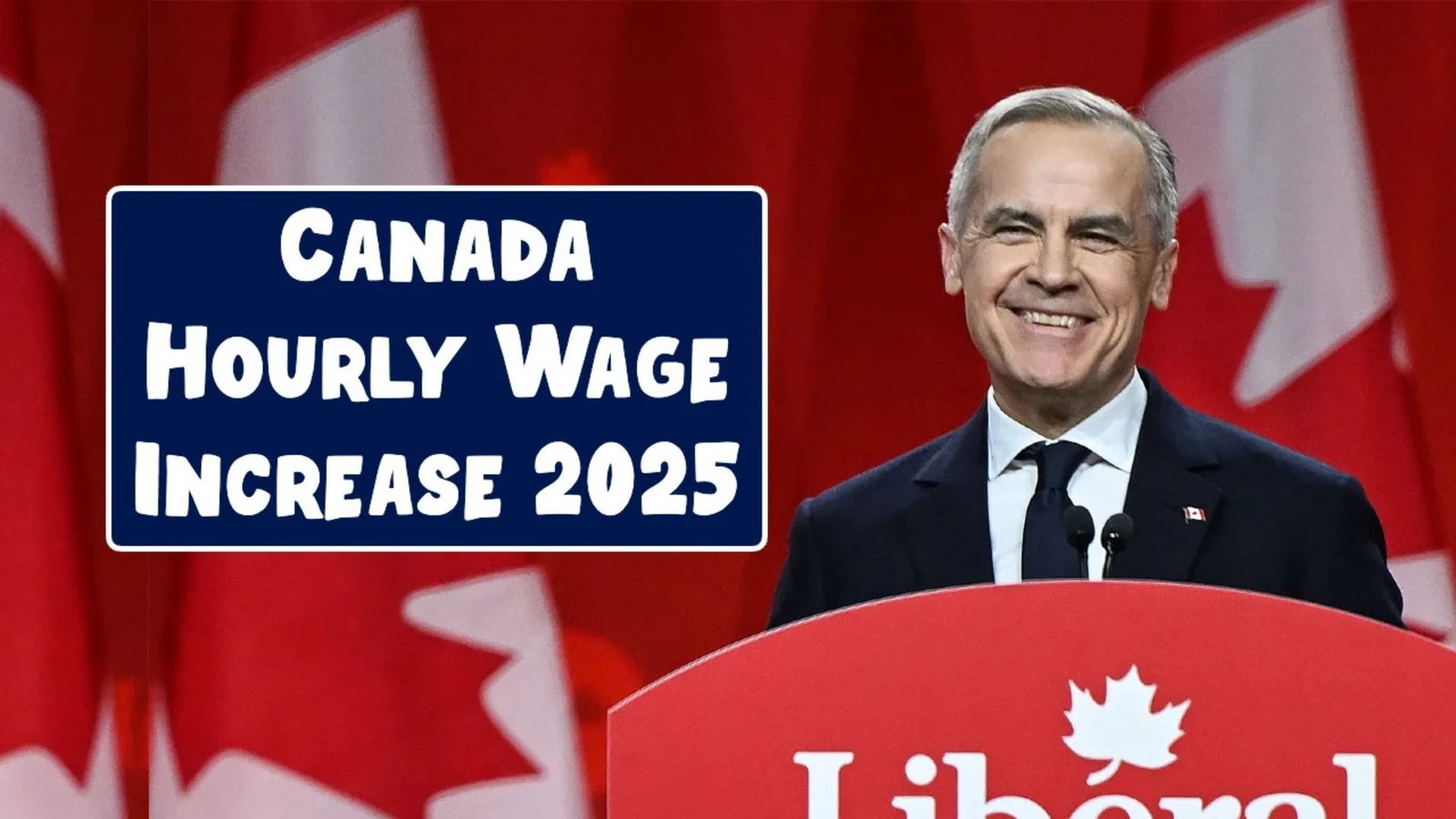As living costs rise across Canada, the Canada Hourly Wage Increase 2025 brings welcome news for workers. Several provinces and territories are boosting minimum wages to help employees manage expenses like housing, food, and transportation. This article breaks down the new minimum wage rates, who qualifies, and when these changes take effect, ensuring you have all the details in simple terms.
What Is the Canada Hourly Wage Increase 2025?
The Canada Hourly Wage Increase 2025 refers to updated minimum wage rates set by provincial, territorial, and federal governments. These increases aim to keep wages in line with inflation, helping workers afford daily essentials. Each region sets its own rates based on local economic conditions, and the federal government sets a baseline for industries like banking and transportation.
Province-Wise Minimum Wage Rates for 2025
Here’s a clear breakdown of the Canada Hourly Wage Increase 2025 by province and territory, including effective dates:
Ontario
- New Rate: $17.60/hour (up from $17.20)
- Student Rate (under 18, working 28 hours or less): $16.60/hour
- Homeworkers: $19.35/hour
- Effective Date: October 1, 2025
- Why It Matters: Supports retail and hospitality workers facing high costs in cities like Toronto.
Manitoba
- New Rate: $16.00/hour (up from $15.80)
- Effective Date: October 1, 2025
- Key Note: Adjusted based on the Consumer Price Index (CPI) to match inflation.
Saskatchewan
- New Rate: $15.35/hour (up from $15.00)
- Effective Date: October 1, 2025
- Details: A modest increase to support entry-level workers in agriculture and retail.
Nova Scotia
- New Rate: $16.50/hour (up from $15.70)
- Effective Date: October 1, 2025 (after an April 1 increase to $15.70)
- Insight: Two-phase hike to address rising costs in Halifax.
Prince Edward Island (PEI)
- New Rate: $16.50/hour (up from $16.00)
- Effective Date: October 1, 2025 (another increase to $17.00 planned for April 1, 2026)
- Impact: Boosts tourism and agriculture workers’ income.
British Columbia
- New Rate: $17.85/hour (up from $17.40)
- Effective Date: June 1, 2025
- Special Rates: Online platform workers (e.g., delivery drivers) earn $21.43/hour.
Yukon
- New Rate: $17.94/hour
- Effective Date: April 1, 2025
- Note: One of Canada’s highest rates, tied to Whitehorse CPI.
Nunavut
- New Rate: $19.75/hour (up from $19.00)
- Effective Date: September 1, 2025
- Why It’s High: Reflects the high cost of living in the North.
Northwest Territories
- New Rate: $16.95/hour (up from $16.70)
- Effective Date: September 1, 2025
- Details: Adjusted for regional economic needs.
Quebec
- New Rate: $16.10/hour (up from $15.75)
- Effective Date: May 1, 2025
- Focus: Supports workers in service industries.
New Brunswick
- New Rate: $15.65/hour
- Effective Date: April 1, 2025
- Overtime: 1.5 times the rate ($23.48/hour) for hours over 44 weekly.
Newfoundland & Labrador
- New Rate: $16.00/hour
- Effective Date: April 1, 2025
- Future Plans: Another increase set for April 2026.
Alberta
- Current Rate: $15.00/hour (unchanged since 2018)
- Note: No increase planned for 2025, the lowest rate in Canada.
Federal Minimum Wage
- New Rate: $17.75/hour (up 2.4% from $17.30)
- Effective Date: April 1, 2025
- Applies To: Federally regulated sectors (e.g., banks, telecom, interprovincial transport). Employers must pay the higher of federal or provincial rates.
Who Is Eligible for the Wage Increase?
The Canada Hourly Wage Increase 2025 applies to:
- All Workers: Full-time, part-time, and temporary employees aged 16+.
- Students: Special rates in provinces like Ontario for those under 18.
- Tipped Workers: Must earn at least the minimum wage before tips.
- Exceptions: Some sectors (e.g., agriculture, liquor servers) may have different rates, but most workers are covered.
Why These Increases Matter
These wage hikes help workers cope with rising costs for essentials like groceries and rent. For example, in Ontario, the $0.40/hour increase adds about $16 weekly for full-time workers, totaling over $800 annually. However, in cities like Toronto, where living wages are $20-$25/hour, minimum wages still fall short.
How to Ensure You Get the New Wage
- Check Your Paystub: Confirm your employer applies the new rate from the effective date.
- Know Your Rights: If wages are below the minimum, contact your province’s labor board.
- Stay Updated: Visit www.canada.ca or www.retailcouncil.org for the latest rates.
Conclusion
The Canada Hourly Wage Increase 2025 is a step toward fair pay, helping workers across provinces like Ontario, Manitoba, and Nunavut manage rising costs. By understanding the new rates, eligibility, and effective dates, you can ensure you’re paid fairly. Employers must adjust payrolls to comply, and workers should stay informed to protect their earnings. For the latest updates, check official government websites.



